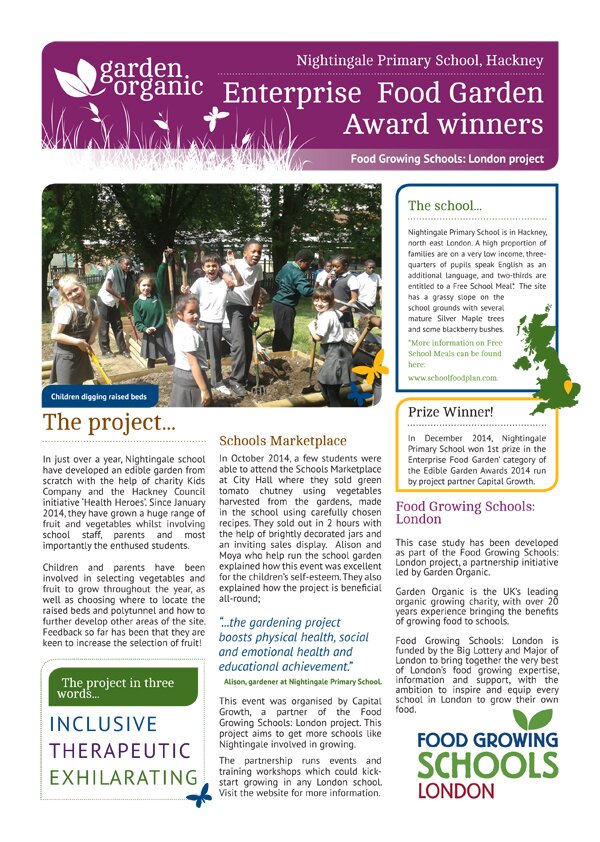12 August 2015
Breakers Yard Pocket Park
Mayor celebrates delivery of 100 pocket parks across London
A green scheme launched by the Mayor of London Boris Johnson to create 100 new pocket parks in the capital has been so successful there are plans to roll it out across the country.
The Mayor has today confirmed he has delivered his manifesto pledge to create 100 rejuvenated spaces as part of his pocket parks programme in 26 London boroughs.
From a rain garden in Vauxhall to a dinosaur playground in Hornsey and edible gardens along a south London bus route, more than 25 hectares of community land across the capital have been converted into new enhanced green areas, thanks to £2million of funding from the Mayor. This was match-funded from the Boroughs, as well as grants from businesses and trusts.
The programme to transform underused urban spaces across the city into mini oases for Londoners to enjoy has been a roaring success and proposals to develop it nationwide are being considered by the government.
The Mayor of London, Boris Johnson, said: “From what started as a green shoot in 2012, dozens of glorious spaces have sprouted up across almost every corner of the capital, offering an oasis of calm from the hustle and bustle of city life.
“They may have been pocket-sized pieces of previously forgotten land, but they pack a real punch in what they now offer local people, thousands of whom have given up their time to make the capital greener and more resilient. It really underlines London’s status as one of the greenest world cities.”
To celebrate the success of the programme, there is a free exhibition at City Hall, which runs to 28 August and shares the stories and experiences of 11 people who helped create pocket park projects across London.
A small area in Churchward House, Lambeth, received funding to install planters to compliment a nearby area planted with street trees, which has dramatically changed an area previously just a walkway between houses.
Jenny Jefferies, of Churchward House in Lambeth who helped on the project, said: “Gardens like these give everyone such a lift and make them feel good. I think there is a basic need to be among green things, people living in cities have fewer opportunities to be among plants, trees and flowers.
“By making more gardens and planted trees, we are increasing everyone’s day to day contact with nature. It is relaxing and important to be in the open air in a garden or park, and it is certainly good for our mental wellbeing.”
Pocket parks are part of the Mayor’s wider plans to maintain London’s status as one of the greenest and leafiest cities. He has also delivered 20,000 Street Trees along London’s most congested roads and funds tree and woodland projects via the Community Grant Scheme, which is engaging communities and volunteers across London. The Mayor leads the RE:LEAF partnership of organisations and through this partnership has delivered a range of projects including planting 10,000 trees in Ealing last December.
8 August 2015
Doing porridge: prison, school and hospital meals put to the test
Can prisoners learn to cook five-star meals? Could a top chef overhaul the canteen at an inner-city London primary? Our restaurant critic gives the food the full review
Marina O’Loughlin reports for the Guardian (Saturday 8 August 2015). Scroll down for section headed ‘Gayhurst community school, London E8’.
The first thing that strikes me as I’m buzzed through the gates of the handsome, red-brick Gayhurst school in Hackney, east London, is the aroma. Walking past a splashily painted planter of herbs, I breathe in the fragrance of garlic and spices – very different from the damp cabbage reek I associate with school dinner halls.
Inside, I’m shown to my seat at the end of a long, communal table under the baleful gaze of an enormous cardboard robot. On the table are boards laden with chopped avocado and cucumber salad, and labneh laced with orange blossom water. “It’s one of my cheffy touches,” admits Nicole Pisani, the former head chef of Yotam Ottolenghi’s Nopi, who caused waves when she left that high-profile gig to take over the school’s canteen. “I love working here and seeing the kids eat our food, but there has to be something in it for me, too.”
Pisani applied for the job following a tweet from Henry Dimbleby, co-founder of Leon and architect of the School Food Plan, saying that his son’s school was in need of a cook. School hours allow Pisani a quality of life – “I get to see my friends!” – and work on other projects in the holidays. But, watching her talking to the children as they clear their plates, it’s obvious she is utterly committed to the job. “I stand by the bins so I can hear what they’re saying,” she says. “But, just as importantly, I can see exactly what they’re eating.”
See full article in the Guardian (Saturday 8 August 2015).
7 August 2015
Filling the holiday gap
Almost a third (31%) of parents on lower incomes have skipped a meal so that their children could eat during the school holidays, according to a new report.
‘Isolation and Hunger: the impact of the school holidays on struggling families’, issued by Kellogs, revealed that more than six out of ten parents with household incomes of less than £25,000 aren’t always able to afford to buy food outside of term time.
For parents with incomes of less than £15,000, that figure rose to a remarkable 73%, while 41% of parents in those low-income families had skipped meals during the holidays.
School holidays are especially difficult for low-income families whose children usually receive free school meals or support from breakfast clubs.
The All Party Parliamentary Group for School Food has produced a framework entitled Filling the Holiday Gap to support the provision of holiday meals. This is intended to support communities with a framework for providing good food as part of holiday learning, play and activity programmes.
Lindsay Graham, Chair of the Holiday Hunger Task Group said:
“We do not yet know the full scale of holiday hunger in the UK, but there are around 1.7million children who are eligible for free school meals who could go without that valuable daily meal this summer.
School holiday periods are an incredibly difficult time for parents on low incomes as limited household budgets are squeezed. Holiday meal programmes that provide a safe environment and fun activities need to be recognised and supported by government policy. No child should be hungry at any time in this country.”
Rob Percival, Food for Life Policy Officer said:
“It’s scandalous that in one of world’s richest nations so many children are not able to eat well. Our government needs to show true leadership on food and inequalities. There can be few areas of public policy where the positive benefits to lives, health and well-being are potentially as radical as they could be in children’s food and nutrition.”
Read original news story on the FFL website.






